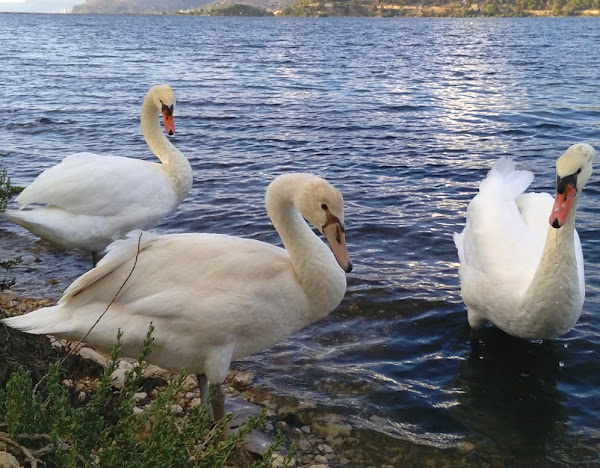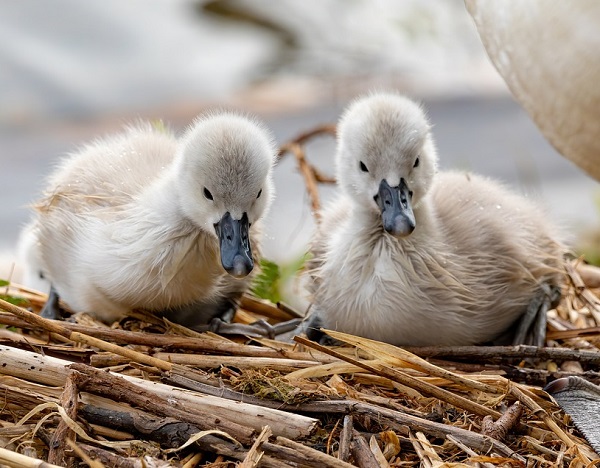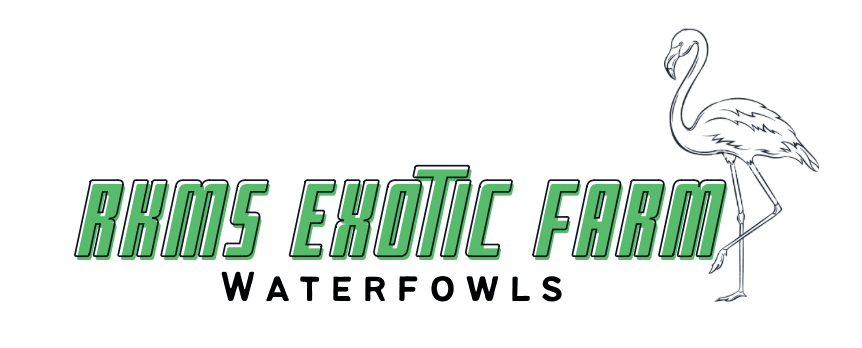How to Start Swan Farming Business
Starting swan farming business is not too easy. You have to invest a good amount of money for starting this business. Although, you will be able to make good profits if you can manage everything perfectly.

It’s not recommended to start this business without having prior experience of raising geese or other poultry birds like this. It will be better if you can learn practically from an expert in your area.
Select the Species
There are many different species of swans to choose from. You can choose any of the species listed above depending on the price and availability in your area.
Swan farming is a profitable business that has been gaining popularity in recent years. Swans are not only beautiful creatures, but they also have a high commercial value for their meat, eggs, and feathers.
However, not all swan breeds are suitable for farming. Here we will shortly describe about the top breeds for swan farming business.
Mute Swan
Mute swans are one of the most common breeds of swans found in farms. They are large and have a striking appearance, with a bright white body and an orange bill. Mute swans are excellent foragers and can easily adapt to different environments.
They are known for their calm temperament and are relatively easy to manage, making them a good choice for beginner farmers.
Black-necked Swan
The black-necked swan is another popular breed for swan farming. They are smaller than mute swans and have a unique appearance, with a black neck and a white body. Black-necked swans are highly adaptable and can thrive in different environments. They are also relatively easy to manage and have a friendly temperament.
Trumpeter Swan
The trumpeter swan is one of the largest swan breeds and is highly sought after for its feathers and meat. They have a striking appearance, with a white body and a black bill.
Trumpeter swans are known for their aggressive behavior and can be difficult to manage, making them a better choice for experienced farmers.
Whooper Swan
The whooper swan is another popular breed for swan farming. They have a unique appearance, with a grayish-white body and a black bill. Whooper swans are hardy birds and can thrive in harsh environments. They are also relatively easy to manage and have a calm temperament.
Tundra Swan
The tundra swan is a medium-sized swan breed that is highly valued for its meat and feathers. They have a white body and a black bill. Tundra swans are highly adaptable and can thrive in different environments. They are also relatively easy to manage and have a friendly temperament.

Choosing the right swan breed is crucial for a successful swan farming business. The breeds mentioned above are some of the best options for swan farming due to their adaptability, temperament, and commercial value.
However, it’s important to note that swans require specialized care and attention, so it’s recommended that you seek advice from an experienced farmer or veterinarian before starting your swan farming business.
Feeding & Watering
Feeding the birds with very good quality and nutritious feed is very important for good growth and good health of the birds. You can feed your swans with ready-made or commercial poultry feeds available in the market.
Any poultry feed containing between 13% and 20% protein is ideal for the swans. Swans are foragers in the wild and will eat leaves, seeds, stems and tubers of submerged aquatic vegetation, grasses, algae, larvae, fish, insects and small invertebrates.
Along with poultry feed and forage, they may be fed dark green lettuce, spinach, shredded carrots, alfalfa sprouts, celery and other vegetables. Brown rice, lentils, cracked corn and split peas are also acceptable foods.
And always try to provide your birds with enough clean and fresh drinking water as per their demand. Also keep adequate numbers of waterer inside their house.
Housing & Shelter
Making a very good housing system for your birds is very important for swan farming. The swans are very clean birds, and they love to live in clean place. So, the house must have to be clean and also comfortable for the birds.
Try to make the house in an open and airy place, and it must have to be well ventilated. The house needs a roof with walls on at least 3 sides. And the open side should not face north (it will be better if the open side face south).

Most of the swan species are cold and heat hardy. The Black Swan is best suited for warmer climates. The Tundra, Bewicks, Trumpter and Whooper swans are best for extremely cold weather. The Australian Black, Black Necked and Coscoroba swans need to be sheltered in the winter in colder climates.
Fencing
A minimum of 2 feet fence is recommended for keeping the swans contained. Swans do wander on occasion, sometimes during their natural migration season. Good fencing will also help to keep the predators out. Increase the height of the fence depending on the predators in your area.
Nesting & Breeding
Depending on the species, breeding season of swan is from early spring to late summer. Males take the duty for building a nest and it must be approved by the females before mating can began.
Swan birds generally mate for life. If their mate is lot, replace with one of the opposite gender. In some cases, a swan may starve themselves and pass away if no replacement is made.

In most cases, nesting will occur near the water. Incubation is primarily the responsibility of the female. Parents will lead their cygnets to the water to swim and feed 24 hours after hatching.
Caring
Taking good care of the birds is very important for swan farming business. Swans are very strong and lively birds. Their average lifespan is between 10 and 30 years or even more depending on species, protection and environment. Taking good care of the birds will ensure good growth and good health of the birds.
The swan is a beautiful bird that is often associated with grace, elegance, and purity. However, these birds are not only beautiful but also caring creatures that exhibit remarkable compassion towards their mates and offspring.
Swans are known to be fiercely protective of their young ones, and they will go to great lengths to ensure their safety. A caring swan will fiercely guard its young from predators and other threats, and will even attack humans or other animals that they perceive as a threat.
The male swan, also known as a cob, is known for his caring and protective nature towards his mate, also known as a pen, during the mating season. The cob will assist his mate in building the nest and will stay close to her during the incubation period, ensuring that she is well-fed and protected.
Once the eggs hatch, the cob will continue to care for his mate and their offspring. He will help in feeding and protecting the cygnets, and will even carry them on his back to ensure their safety.
The pen, on the other hand, is responsible for feeding and caring for the cygnets, keeping them warm, and teaching them to swim.
Swans are also known for their loyalty towards their mates, and they will stay together for life. They exhibit a remarkable level of commitment towards each other, and will even mourn the loss of their mate if one of them passes away.

Apart from their caring nature towards their own offspring, swans have also been known to exhibit acts of kindness towards other animals. There have been numerous reports of swans rescuing other animals such as ducks, geese, and even humans from drowning.
In one such incident, a swan in England was reported to have rescued a dog that had fallen into a canal. The swan used its beak to nudge the dog towards the canal’s edge, allowing it to climb out and reunite with its owner.
Marketing
Before starting swan farming business, determine your marketing strategies. If you can’t sell the birds in proper price, then you will not be able to make good amount of profits.
Swan farming is a relatively niche industry, and marketing for swan farms can pose unique challenges. However, with the right marketing strategies, swan farm owners can reach their target audience and increase their business’s visibility and profitability.
One of the key strategies in marketing for swan farms is to identify the target audience. The target audience can vary depending on the type of swan farming business, such as breeding for sale or for exhibition purposes.
It is important to understand the needs and interests of the target audience to develop effective marketing strategies.
In addition to identifying the target audience, creating a strong brand image is essential in swan farming business marketing.
A brand image that communicates the quality and uniqueness of the swans can help the business stand out in a competitive market. Developing a logo, website, and social media presence can help establish a strong brand image.
Another effective marketing strategy for swan farms is to participate in exhibitions and shows. Exhibitions and shows provide a platform for swan farms to showcase their products and services, connect with potential customers, and network with other businesses in the industry.
Social media marketing can also be a powerful tool in promoting a swan farming business. Platforms such as Instagram, Facebook, and Twitter can be used to share photos and videos of the swans, provide updates on new arrivals, and share educational content about swan care and breeding. Engaging with followers and responding to comments can help build a loyal following and attract new customers.
Word-of-mouth marketing can be a powerful tool in promoting a swan farming business. Satisfied customers can share their positive experiences with others, leading to new business opportunities.
Offering exceptional customer service, providing a high-quality product, and going above and beyond for customers can help create a positive reputation for the business.



